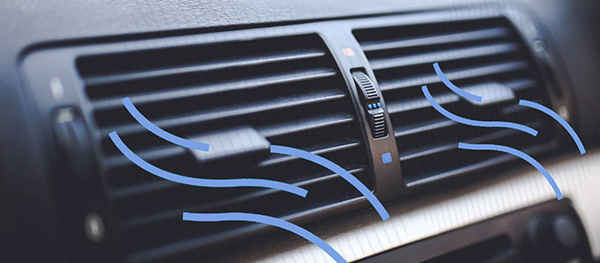Why does my car ac only get cold when i accelerating?
Reasons Why Your Car AC Only Gets Cold When Accelerating

Low Refrigerant Levels
Description: Refrigerant is the substance responsible for cooling the air in your car’s AC system. If levels are low, it can lead to diminished cooling performance.
Cause: Leaks in the AC system or gradual evaporation over time can result in low refrigerant levels.
Weak Compressor
Description: The compressor pressurizes the refrigerant, allowing it to absorb heat from the cabin and cool the air.
Cause: A worn-out or malfunctioning compressor may struggle to operate efficiently, especially at idle or low speeds.
Clogged Expansion Valve
Description: The expansion valve regulates the flow of refrigerant into the evaporator, where it absorbs heat from the cabin air.
Cause: Accumulation of debris or contaminants can obstruct the valve, hindering the flow of refrigerant and reducing cooling capacity.
Dirty Condenser
Description: The condenser dissipates heat from the refrigerant, allowing it to return to a liquid state.
Cause: Accumulated dirt, debris, or road grime on the condenser fins can impede heat transfer, resulting in reduced cooling efficiency.
Failing Cooling Fans
Description: Cooling fans help dissipate heat from the condenser, aiding in the refrigerant’s cooling process.
Cause: Malfunctioning or ineffective cooling fans may fail to provide sufficient airflow, particularly at low speeds or idle, impacting AC performance.
What to Do?

- Check Refrigerant Levels
Visit a certified mechanic to check refrigerant levels and identify any leaks in the AC system. If necessary, recharge the system with refrigerant to the manufacturer’s specifications.
- Inspect the Compressor
Have a professional inspect the compressor for signs of wear or malfunction. Replace the compressor if necessary to restore optimal AC performance.
- Clean or Replace the Expansion Valve
Clean or replace the expansion valve to ensure proper flow of refrigerant into the evaporator, improving cooling efficiency.
- Clean the Condenser
Clean the condenser fins to remove any dirt or debris, allowing for better heat dissipation and improved cooling performance.
- Check and Replace Cooling Fans
Inspect the cooling fans for proper operation and replace them if they are damaged or not functioning effectively.
Interesting Facts

- AC Efficiency and Engine Load
Your car’s AC system places an additional load on the engine, which can impact performance, particularly at idle or low speeds. When you accelerate, the engine generates more power, which can enhance the performance of the AC system.
- Environmental Impact of Refrigerant Leaks
Refrigerant leaks not only reduce AC efficiency but also contribute to environmental pollution. Many refrigerants used in car AC systems, example: R-134a, are potent greenhouse gases when released into the atmosphere.
- Importance of Regular Maintenance
Regular maintenance, including checking refrigerant levels, cleaning components, and inspecting for leaks, is crucial for ensuring optimal AC performance and prolonging the lifespan of your car’s cooling system.












